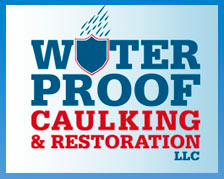Commercial construction should be made to last. Accomplishing that feat, however, depends on the type and quality of the materials used. Masonry is notorious for being tough enough to withstand the elements, such as rain, snow or ice, but within the overarching umbrella of masonry are numerous options. If you are considering new commercial construction, expansion of an existing commercial structure or even just touch-ups and add-ons to your current building, you will need to pick which type of masonry to trust for the task. Here’s what you need to know about the types of commercial masonry that are available for construction and how to pick the right option.
Brick Masonry
Perhaps the most common masonry choice for both commercial and residential structures is brick. Due to its longevity, ease of installation and varying potential colors, brick is appealing in many cases. Within brick masonry, the installation can be broken down into three unique types of construction:
- Solid walls: Made of at least two layers of brick instead of just one.
- Cavity walls: Use of multiple layers just like solid wall designs, but only the outside is brick. The inside might be something thick like concrete to prevent water intrusion.
- Veneer walls: A single layer of brick tied to the studs of the building and primarily used as an external surface due to its pleasing appearance.
Bricks can be made of many materials, though the most common is clay. In certain circumstances, bricks made of lime, concrete and more might be a more appropriate option-an expert can help you make this determination.
Stone Masonry
Second in popularity behind brick is stone masonry. It is similar in many ways, though stone can contribute a more rustic look than brick depending on the approach that you choose. The two main ways to utilize stone masonry for your commercial building are:
- Ashlar masonry: Stones are cut into consistent shapes so that they look similar to brick in terms of a repetitious, visually pleasing pattern.
- Rubble masonry: A stone variant that is growing in popularity. Stones are either completely uncut or are lightly chiseled, so the stones used for construction are not necessarily a consistent shape. This can produce a rustic look without compromising the structural integrity of the building.
Stone masonry may be more expensive than brickwork depending on the type of stone that you select for your building.
Concrete Masonry
In terms of general robustness, it is difficult to beat concrete. However, in exchange for the toughness and reliability of concrete, buildings may sacrifice some of their aesthetic charm. Concrete masonry relies on blocks that are most often used specifically for building foundations or walls. Thus, concrete is rarely the option for making the entire building; it will usually be paired with something like brick for the exterior-facing surfaces.
- Hollow blocks: Some types of concrete block are hollow. This makes them more affordable, but they are also slightly more prone to cracking.
- Solid blocks: When a concrete block does not have any hollow areas, it is considered solid. These blocks are more expensive because they use more materials, but they are very sturdy.
Stucco Masonry
Stucco is related to concrete masonry in that it is made with plaster that comes from cement. It offers a unique appearance, and most stucco buildings use some shade of tan, beige or brown. However, more recent innovations have allowed for more shade variation within stucco, with non-neutral stucco colors ranging from pink to green to blue.
One thing to note is that stucco masonry takes a longer-than-average time to dry, so it is best used in climates where the building can go without inclement weather for a while. In exchange for the wait, however, you will be met with a highly durable building.
Choosing the Type of Masonry That’s Right for Your Project
Choosing the right type of masonry comes down to understanding what you want out of your building.
- If you want the strongest build possible, choose concrete.
- If you want people to notice your building out of others in the area, choose stucco.
- If you want something affordable and aesthetically pleasing, choose brick.
- If you have some budget and want something more refined than brick, choose stone.
Of course, it is entirely possible to combine these options within one commercial building. An expert can help you determine the best course of action.
Trust the Pros to Help You Complete Your Commercial Construction
Making the final call on what material to use for your commercial construction project can feel daunting. The professionals at Waterproof Caulking & Restoration would be happy to walk you through the pros and cons of each option, as well as what to expect for upkeep over the years. Reach out to learn more about masonry choices or to schedule an appointment to get started.
